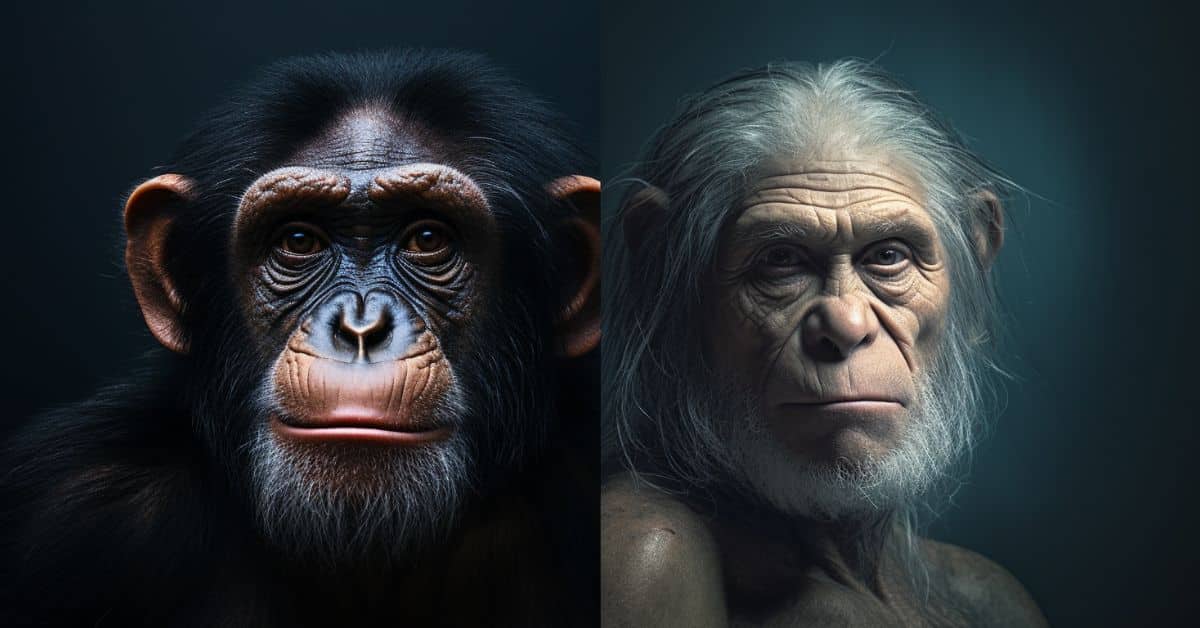When observing the animal kingdom, the distinctions between species provoke intrigue, and none more so than the unique characteristics that delineate humans from their closest evolutionary relatives, the primates. While all primates share common ancestral traits, humans exhibit a confluence of unique attributes, both physiological and cognitive, that warrant careful examination. This article seeks to illuminate the defining characteristics that not only set humans apart but also invoke a sense of fascination and curiosity about our species.
One of the most conspicuous distinctions is our advanced cognitive capabilities. Humans possess an extraordinarily high degree of intelligence compared to other primates. This is not solely due to brain size; rather, it is intricately linked to the structure of the human brain, particularly the neocortex, which is responsible for higher-order functions such as reasoning, problem-solving, and the comprehension of complex concepts. The human brain exhibits a remarkable degree of lateralization, wherein different hemispheres are specialized for various cognitive functions. This specialization enables nuanced thought processes that are integral to language acquisition, social interaction, and cultural development.
Language stands as a cornerstone of human uniqueness. While other primates communicate through vocalizations, gestures, and facial expressions, humans utilize complex and abstract linguistic systems that allow for the expression of intricate ideas, emotions, and narratives. Language is not merely a tool for communication; it shapes our worldview and facilitates collaboration. The capacity for symbolic thought—underpinning our ability to create and interpret abstract symbols—enables us to ponder philosophical questions, share our histories, and cultivate a rich tapestry of culture.
Another significant differentiator is our penchant for tool-making and the use of technology. While certain primates exhibit rudimentary tool use, humans take this a step further, demonstrating an unparalleled ability to innovate and manipulate the environment using a wide array of complex tools. From the prehistoric stone implements to modern technological marvels, the human capacity for invention is reflective of our cognitive prowess. This adaptability and understanding of mechanical principles allow us to alter our surroundings in ways that no other species can, facilitating survival and improved quality of life.
Social structures in humans also exhibit a remarkable sophistication compared to other primates. Human societies are characterized by intricate social hierarchies, cultural norms, and cooperative behaviors. While many primates live in social groups, the complexity of human social organization is unparalleled. Humans navigate elaborate social networks, fostering relationships that are often based on factors beyond mere kinship or reproductive advantage. Altruism, empathy, and moral reasoning play significant roles in human interactions, enabling us to form bonds that transcend immediate survival needs and contribute to societal cohesion.
Art and culture further distinguish humanity from other primate species. The creation and appreciation of art—be it visual, musical, or literary—serve as a testament to our capacity for aesthetic expression. Unlike other primates, who may engage in play or mimicry, humans create works with profound meanings that reflect the human experience, probe existential questions, and inspire innovation. Cultural transmission, the way knowledge and practices spread within and between generations, cultivates complex traditions that shape human societies and contribute to a shared identity.
Moreover, human beings exhibit a highly developed sense of self-awareness. This self-perception, accompanied by the capacity for introspection, is more advanced than that observed in other primates. The ability to reflect upon one’s thoughts, emotions, and place in the universe allows humans to confront the concept of mortality, ethical dilemmas, and the pursuit of transcendence. This existential awareness fosters a yearning for deeper understanding, spurring philosophical inquiries and the exploration of spirituality that often defines human societies.
Humans are also unique in their relationship with the environment. While other primates interact with their habitats in specific ways to meet immediate needs, humans impact ecosystems on a global scale. Agricultural practices, industrialization, and urbanization exemplify our ability to engineer landscapes, often leading to ethical dilemmas surrounding sustainability and conservation. This drive to modify environments speaks to a blend of creativity and responsibility, highlighting the duality of human ingenuity.
Despite these disparities, it is critical to acknowledge the commonality that links humans to other primates. We share evolutionary heritage, social behaviors, and certain biological characteristics. Our evolutionary journey has shaped the physical and psychological attributes that render humans unique, yet it also reminds us of the intrinsic connections underlying our existence. The fascination with what makes humans truly unique emerges from this interplay between distinctiveness and commonality, igniting a curiosity that propels anthropological inquiry forward.
In conclusion, the nuances that set humans apart from other primates encapsulate an array of cognitive, social, and cultural dimensions. The interplay of advanced intelligence, complex communication, intricate social structures, and profound self-awareness creates a rich tapestry of human experience that invites constant exploration. Understanding these elements not only elucidates our unique position within the animal kingdom but also fosters a deeper appreciation of our shared heritage with primates and the broader tapestry of life on Earth.
